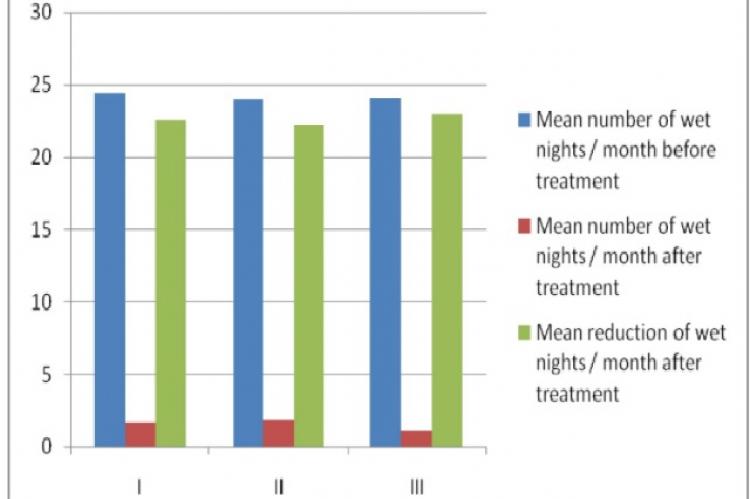To study the comparative efficacy of Imipramine, Oxybutinin and Desmopressin in managing children with primary nocturnal enuresis. The present study was carried out on 90 children of either sex presenting with the criteria of primary nocturnal enuresis. Study subjects were randomly divided into three groups of 30 children- Imipramine group (Group I), Oxybutinin group (Group II) and Desmopressin group (Group III). Following variables were compared: night time bladder control, number of dry nights, compliance, side effects and relapses during followup. Difference in intergroup drug compliance was not significant indicating that all the 3 drugs regimen were well adhered. In group I, 20% of the cases showed adverse effects. In group II and III the corresponding figure was 16.7%. Cases responding to the drug treatment were 43.3% in Group I, 30 % in group II and 70% in group III respectively. Among 13 responders in group I; 10 (76.9%) relapsed at the end of follow up period. Of 9 responders in group II; 3 (33.3%) relapsed and among 21 responders in group III; 7 (33.3%) relapsed. It is concluded that all the three drugs cause significant reduction in wet nights. However Desmopressin had the highest response rate and the lowest relapse rate. Imipramine had a better response rate than Oxybutinin but it also had the highest relapse rate among the three drugs. All the 3 drugs had minimal side effects, hence the compliance was very good in all the 3 groups.
View:
- PDF (277.58 KB)


